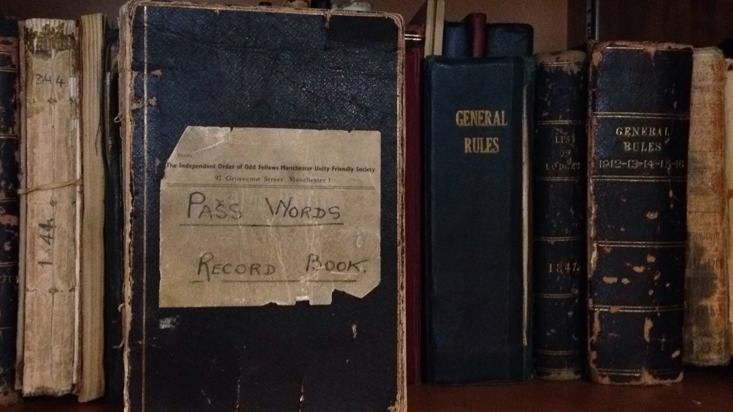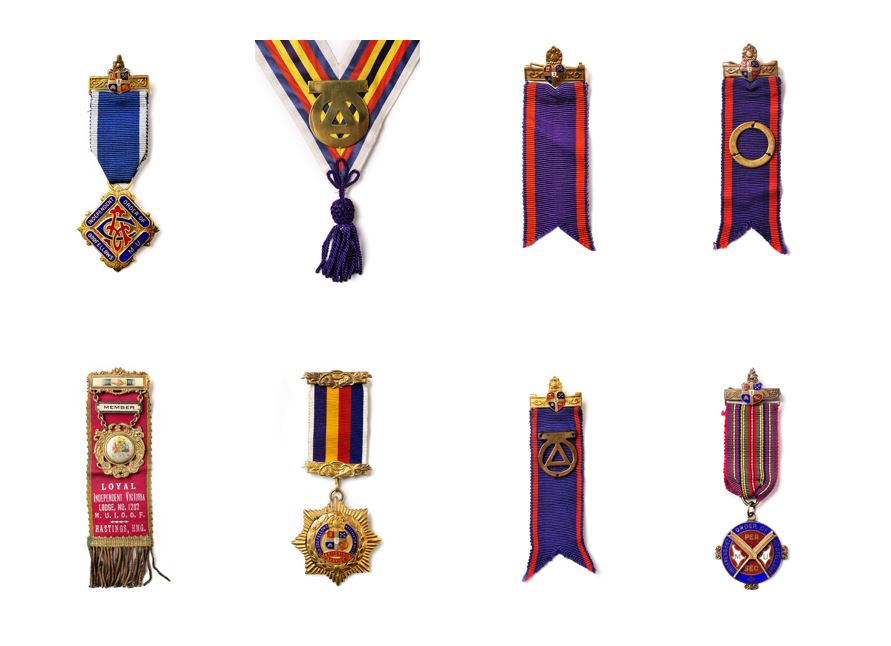We go way back. Since coming together over two centuries ago, our Society has evolved its own set of Oddfellows traditions, jargon and ways of working. It’s just like any other organisation with a proud, long-standing heritage such as ours.
A fraternal Society
We celebrate our traditions. They make us who we are today and they reaffirm our founding ethos of ‘making friends and helping people’. Fraternal, which means 'of or being a society of fellows associated in brotherly union, as for mutual aid or benefit', has been our watchword from day one – when a pioneering group of workers came together in a pub in Salford, UK, to look at ways in which they could better support each other and the people around them.
This sense of family and mutual support has continued into present day and sums up the collaborative spirit of Oddfellowship. We know that by bringing people together, we can achieve so much more than we could alone.
As a member, you may hear us refer to each other as ‘Brothers’ or ‘Sisters’. It’s because we hold and value our members with the same warm regard as we would someone from our own family.
Traditional terms and everyday meaning
Grand Master, Secretary of the Order, Lodge and Annual Movable Conference – these are just a few of the traditional terms still in use by the Oddfellows. Our traditional terms are simply Society jargon for everyday business functions and ways of working. They may sound odd on first read, but that’s because the language used can be traced back to our earliest years or, in most instances, even prior to that.
Our most common traditional terms include:
- Chairman of the Society – Grand Master (GM)
- Deputy Chairman of the Society – Deputy Grand Master (DGM)
- Secretary of the Order – Secretary of the Order (SOO)
- Immediate Past Chairman of the Society – Immediate Past Grand Master (IPGM)
- Past Chairman of the Society – Past Grand Master (PGM)
- District Chairman – Provincial Grand Master (Prov GM)
- District Deputy Chairman – Provincial Deputy Grand Master (Prov DGM)
- Immediate Past District Chairman – Immediate Past Provincial Grand Master (IPPGM)
- Past District Chairman – Past Provincial Grand Master (PPGM)
- District Secretary – Provincial Corresponding Secretary (Prov CS)
- Branch Chairman – Noble Grand (NG)
- Branch Deputy Chairman – Vice Grand (VG)
- Annual General Meeting – Annual Movable Conference (AMC)
- Branch – Lodge
The Order
The Order refers to a set of rules, rituals or customs that Oddfellows members can choose to follow. It helps us to both preserve and live our founding fraternal values.
To become, or be, an Oddfellows member, you don’t have to be involved in the Order aspect of the Society. It makes no difference to your benefits or entitlements.
Where the difference lies is if you wish to progress through the organisation in particular elected Officer roles, such as a Society Chairman (Grand Master), or serve on certain committees, such as a Branch’s Committee of Management.
However, for some members it is not about progressing through the Society’s Officer roles at all, but simply enjoying being involved in Oddfellows traditions and learning about our values and Oddfellowship.
To become involved in the Order, there is an initial step of being ‘welcomed’. This then opens up options to further explore Oddfellowship and its Virtues through three progressive stages of ‘Lectures’.
Our Virtues explore the positive traits of friendship. They include common sense (Prudence), restrain and balance (Temperance), truth and fairness (Justice), courage and strength of character (Fortitude), belief and trust (Faith), looking forward with confidence (Hope) and selfless want for others' happiness (Charity). Many who have progressed through the Lectures say they found the journey thought-provoking and rewarding. And, in taking time out to explore such elements of friendship, they felt it highlighted how such virtues still hold valuable modern-day relevance.
Welcoming members to the Order
The initial welcoming step to the Order can be undertaken as a formal ceremony or informal reading. Welcoming includes the member agreeing to observe confidentiality about the matters of business of the Society. This is important, as should the member be involved in the Society through certain Officer positions or committees, they will be privy to personal and sensitive information, such as decision-making around Benevolence Grant applications.
Lectures of the Order
The Lectures (or Degrees) allow the member to fully explore and learn about the Order’s rules, rituals and customs. There are three stages of Lectures:
- Minor Lectures. There are four steps to completing Minor Lectures. In order, they are White, Blue, Scarlet and Gold. As with welcoming, they can be held either as a formal ceremony or informal reading. Completing the four Minor Lectures entitles a member to stand as Branch Chairman (Noble Grand).
- Past Officers Lectures. These are awarded if you have undertaken the roles of either Minute Secretary, Branch Deputy Chairman (Vice Grand) or Branch Chairman (Noble Grand).
- Purple Lecture. To gain this most prestigious qualification, the member must have been an Immediate Past Branch Chairman (Immediate Past Noble Grand), completed the four Minor Lectures, together with the Past Officers Lectures attached to the office of a Branch Chairman (Noble Grand). This is unless they have been a permanent or assistant secretary for at least two years or an Elective Secretary or Trustee for at least four years.

Signs and passwords
The use of signs and passwords within the Society is inextricably linked to our past, where their use was an important means for members to recognise each other, prove membership and their entitlements to funds. Before universal education, many workers were illiterate, so the use of signs were essential to communication.
During periods of the 18-19th century, societies such as ours were deemed illegal. Government informers were paid to infiltrate Branches (Lodges), so signs and passwords were needed to secure the safety and security of members. Many are still used as part of our Order’s business, to celebrate and honour our social history and heritage.
Our best known symbol is the Three Links, which you can see at the top of our logo’s crest. It stands for ‘Friendship, Love and Truth’ – three words still held in high regard by many of our members.

Jewels – our medals of honour
The dedicated work and achievements of our elected Officers, and the exemplary service of long-standing members, is something we love to recognise and celebrate. One way in which we do this is through the awarding of a Jewel. Some of our current and historical Jewels are shown above.
Would like to find out more about the Order and how you can become involved as a member? Simply get in touch with your Branch Secretary. You can find their details by using our Branch Finder.






